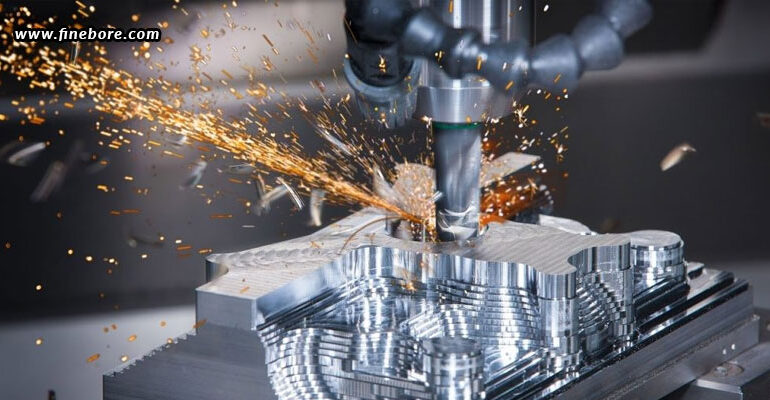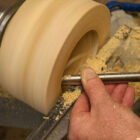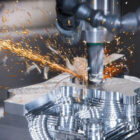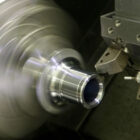Boring is an essential yet often overlooked process in precision machining, playing a vital role in ensuring the accuracy and quality of manufactured parts. It is crucial across various sectors, including aerospace, automotive, medical devices, and oil and gas, for producing holes with stringent tolerances, smooth finishes, and exact diameters. As the need for greater precision and more intricate designs increases, advancements in boring techniques and technologies are significantly influencing the future of manufacturing.
This blog will examine the significance of boring in contemporary machining, exploring its diverse applications, the challenges it encounters, and the technological innovations propelling its future. From the complex bores found in turbine blades to the deep holes in engine blocks, boring remains one of the most dependable and precise methods for hole creation in high-precision manufacturing. Whether your focus is on enhancing tool longevity, improving surface quality, or minimizing machining time, grasping the importance of boring in manufacturing is essential for achieving superior performance and fulfilling the requirements of today’s industries.
Boring in today’s manufacturing landscape
In the past, boring was primarily used to create basic cylindrical holes. However, modern manufacturing demands more precise and complex applications. For example, in the aerospace industry, the accuracy required for turbine and engine components cannot be achieved with simple drilling. Similarly, automotive components like engine blocks and transmission cases require precisely sized holes for effective assembly, sealing, and lubrication. These sophisticated applications highlight the increasing need for innovation in boring techniques. Manufacturers are now relying on advanced boring processes to meet these high-precision requirements, ensuring better quality and efficiency in industries like aerospace, automotive, and medical.
Innovations in boring
As industries evolve, so does the boring process. New technologies, such as high-frequency vibration-assisted boring bars and advanced cutting tool materials, are revolutionizing boring methods. These innovations improve tool life, reduce cutting forces, minimize vibrations, and enhance surface finishes. As a result, manufacturers can meet stricter quality standards and reduce production costs. Companies like FineTech Toolings are leading the way by offering precision boring tools designed for optimal efficiency and precision. With their cutting-edge boring bars, heads, and accessories, FineTech Toolings proves to be one of the most versatile boring tools suppliers in Bangalore that supports manufacturers in achieving exceptional results across various sectors, including aerospace, automotive, and beyond.
The challenges of boring
Despite ongoing advancements, the boring process still presents challenges. Achieving the right balance between cutting speed, tool wear, and precision requires careful planning and control. As materials like titanium alloys and composites become more common, the difficulty of achieving precise boring results increases. These harder, more complex materials often require specialized tooling and techniques to ensure accuracy. Manufacturers must also contend with the impact of tool wear and machine stability. However, continuous research and development are yielding new solutions, helping manufacturers tackle these challenges and continue pushing the boundaries of precision in boring operations.
The future of boring
As we gaze into the future, the function of boring in precision machining is poised for transformation. The increasing incorporation of automation, robotics, and artificial intelligence is enhancing the machining process, thereby improving the effectiveness of boring operations. The adoption of advanced technologies, such as real-time data analysis and predictive maintenance, will foster even more efficient and cost-effective boring methods, ultimately expanding the possibilities within contemporary manufacturing.
Although often underestimated, boring plays a crucial role in precision machining. With industries striving for higher quality standards, the future of boring is likely to be characterized by innovation, efficiency, and accuracy. Manufacturers who recognize and utilize these advancements will be better prepared to tackle current challenges and seize future opportunities.




